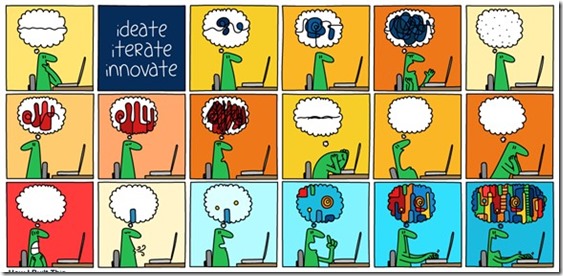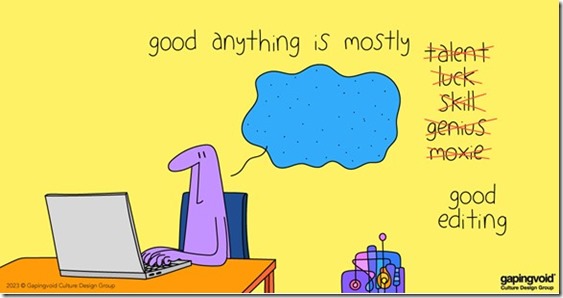Another gem from my top family contributor to the blog, our son Chase. He shared this video piece about embracing “bad music”. I certainly appreciate the value of injecting experimentation, serendipity, break from convention and even a bit of randomness and deliberate variation from the norm. But “Simon the Magpie” takes those principles to new levels. He introduces the video with the following:
· “Are you someone who’s always wanted to make music but feels discouraged because you don’t think you’re very good at it? Well, you’re not alone, and in this video, we’ll explore the surprising benefits of being bad at making music.”
- “Firstly, when you’re bad at making music, you’re more likely to experiment and try new things. You won’t be weighed down by the pressure to create something perfect, which means you’ll be more open to taking risks and exploring new ideas. This can lead to unique and innovative sounds that you might not have discovered otherwise.”
- “Secondly, being bad at making music allows you to embrace imperfection. It’s okay to make mistakes, and in fact, some of the greatest musicians of all time have made mistakes and embraced them as part of their sound. By accepting your flaws, you can focus on the parts of your music that make it unique and special.”
- “Thirdly, making bad music can be a great stress reliever. It’s not about creating something perfect, but rather about having fun and enjoying the process. This can help you let go of stress and anxiety and focus on the present moment.”
- “And finally, being bad at making music can actually help you improve. By making mistakes and experimenting, you’ll learn what works and what doesn’t. This will help you refine your skills and ultimately create better music.”
The message dovetails with a post by my all-time top contributor, Hugh MacLeod, “What’s Your Latest Bad Idea?“ I especially like his accompanying cartoon illustrating the convoluted path through bad ideas to a good one. It is important to point out that embracing “failure” is the *means*, not the *ends*. We don’t seek out failure for its own sake (that would make life very easy). Instead, we use failure as. But like a hammer or scaffolding, we put it away when we are done with our project.
That path *through* failure (not *to* failure) is elaborated on Hugh’s follow-on post “Why You Should Hit the Delete Key More Often”.
As Thomas Edison said, "The key to having great ideas is having a lot of bad ones first."
The problem is not having the bad ideas…it is in recognizing the good ones hidden among them. Especially important with the digital age of ChatGPT which will be a nuclear reactor of idea generation, but as has been well documented, very may of these4 are quite bad. But as a tool for mining ore, it could be a gold mine for those effective at refining its output. I experienced tis directly just this week when I needed to draft a fairly routine business correspondence and we decided to try OpenAI on the task. Frankly, the system produced a better first draft than I think I would have done. BUT, there were several very subtle bits which were really quite off (didn’t flow, didn’t make sense), but were readily fixed by a quick edit by me. Perhaps the Age of AI will make us all editors. So practice now by coming up with as many bad ideas and as much bad music as possible to practice on.

